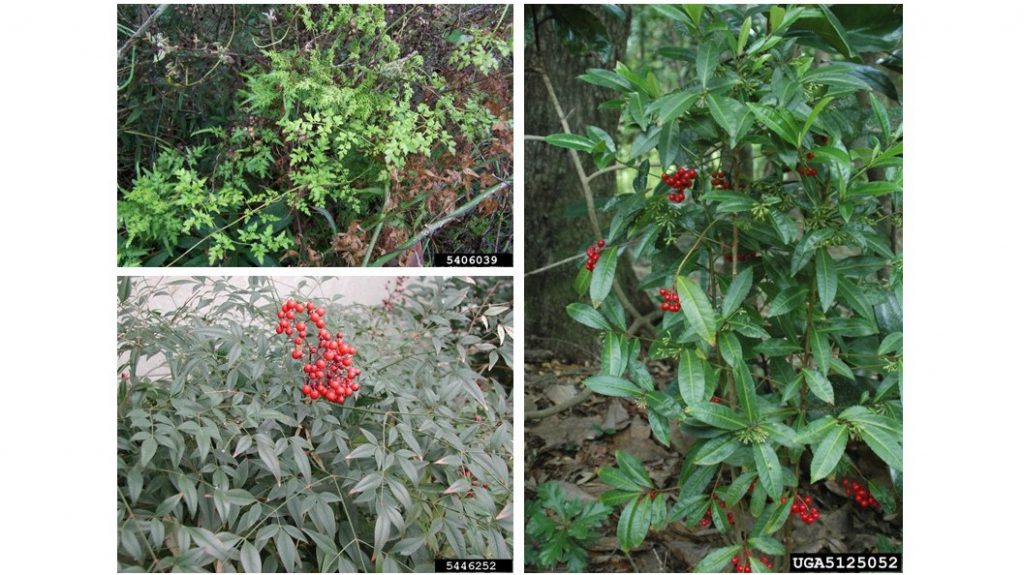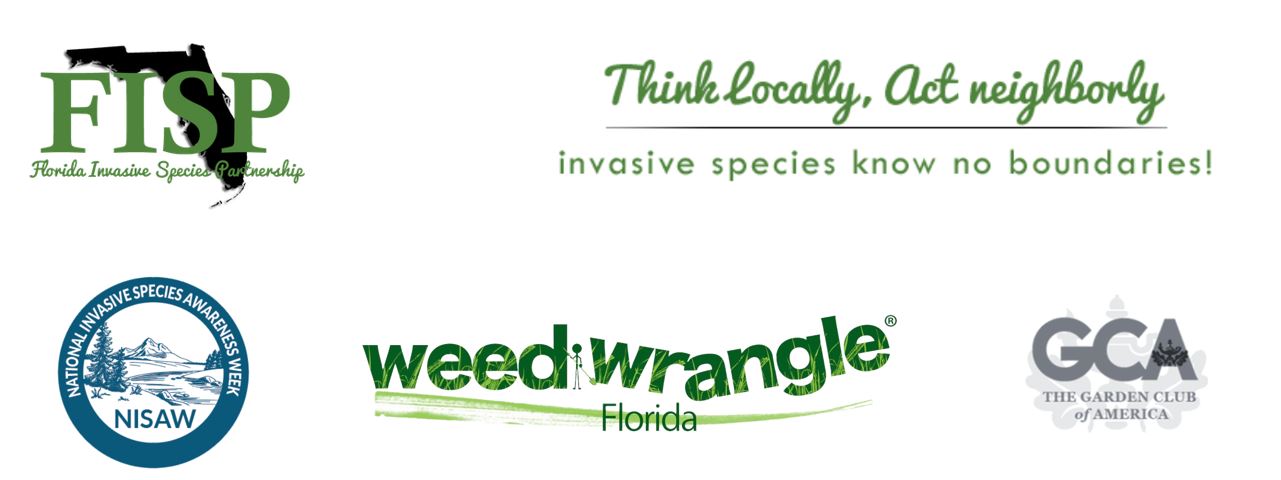February 22 to 26, 2021 is National Invasive Species Awareness Week (NISAW). This is a time where many organizations involved with land management and conservation will be sharing information to educate the public about the issue of invasive plant and animal species. Living in Florida, we should all be well aware of the concerns with invasive species as we have experience with many, including the fire ant, kudzu, iguanas, climbing fern, and pythons. Oh my! Due to Florida’s climate and our many active ports, we are prime for introductions of many non-native species. These invasive species alter our unique ecosystems and can cause harm to us humans by blocking waterways (aquatic plants like Hydrilla), affecting our health (allergenic plants like Chinese privet) and the health of our pets and livestock (dogs allergic to tropical dayflower and cattle killed by Nandina). Since many of these pests were brought here for the ornamental landscape trade, gardeners have a responsibility to be aware of these invasive species and do what they can to control them.

A few of the most common invasive species you may find in your north Florida landscape. Clockwise from top left – Japanese climbing fern, coral ardisia, and heavenly bamboo. Image Credit: Bugwood.org
There are several great resources from UF/IFAS to help with identification and control of invasive species, from your local county extension agents to a slew of online publications and websites. This year, the Florida Invasive Species Partnership (FISP), of which UF/IFAS is a partner, is coordinating a pandemic-safe, stay-at-home Weed Wrangle to encourage Floridians to work on controlling invasive species. If you share your efforts, you’re eligible for prizes, including weed pullers and gift certificates for native plants! For more information, check out the website for the Florida Weed Wrangle Week event – https://www.floridainvasives.org/flwww.cfm.
For more help identifying and controlling invasive species, contact your local county extension office or visit this UF/IFAS website that is a clearinghouse of invasive species information – https://sfyl.ifas.ufl.edu/natural-resources/invasive-species/.
- Let Extension Diagnose Your Landscape Issues - May 28, 2025
- No Mow March 2025! - February 27, 2025
- New Year’s Resolution Ideas for Gardeners - January 16, 2025

